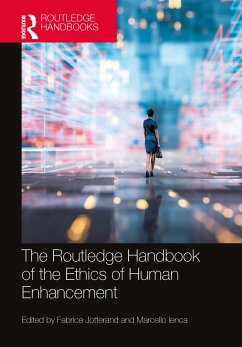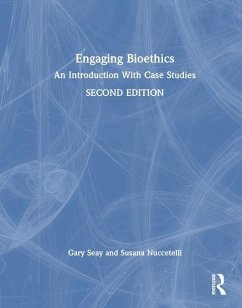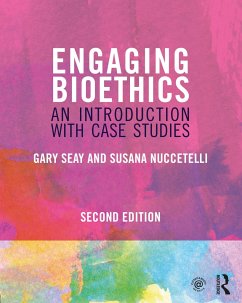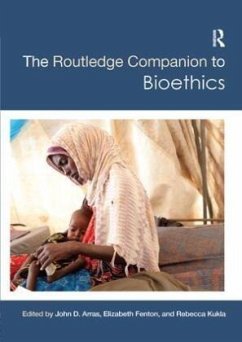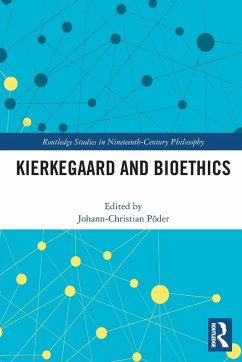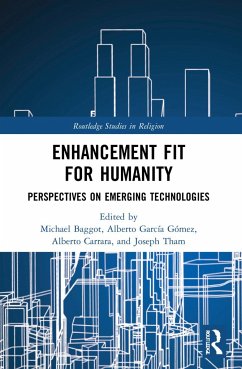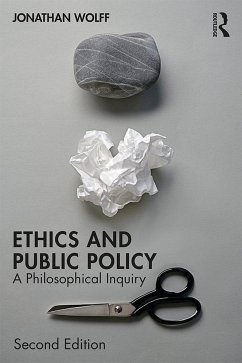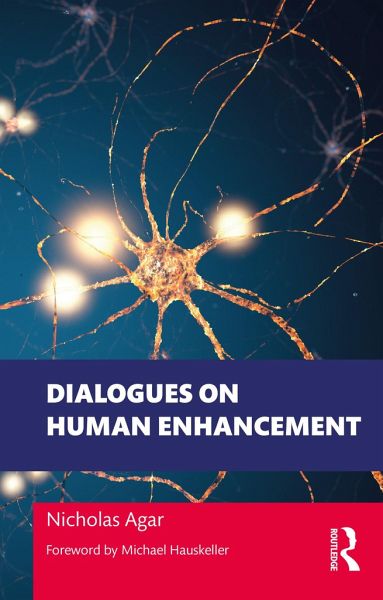
Dialogues on Human Enhancement
Versandkostenfrei!
Versandfertig in 6-10 Tagen
39,99 €
inkl. MwSt.
Weitere Ausgaben:

PAYBACK Punkte
20 °P sammeln!
We face an emerging range of technologies that can be applied to our human natures with the goal of enhancing us. There are nootropic smart drugs and gene editing that influence the development of the brain. The near future promises cybernetic technologies that can be grafted onto our brains and bodies. The challenge for readers of Dialogues on Human Enhancement is to decide how to respond to these and other coming enhancement technologies.As you read these dialogues you will meet passionate advocates for a variety of responses to enhancement tech, ranging from blanket rejection to ecstatic en...
We face an emerging range of technologies that can be applied to our human natures with the goal of enhancing us. There are nootropic smart drugs and gene editing that influence the development of the brain. The near future promises cybernetic technologies that can be grafted onto our brains and bodies. The challenge for readers of Dialogues on Human Enhancement is to decide how to respond to these and other coming enhancement technologies.
As you read these dialogues you will meet passionate advocates for a variety of responses to enhancement tech, ranging from blanket rejection to ecstatic endorsement. You'll encounter Olen, for whom there is no such thing as too much enhancement. You'll meet Winston, a bioconservative who fiercely but also imaginatively opposes any human enhancement. And there is the moderate Eugenie, who strives to distinguish between enhancement technologies that should and should not be accepted. As these characters philosophically engage with each other they will benefit from the supervisory presence of Sophie, the philosopher.
Dialogues on Human Enhancement does not arrive at a single conclusion. Olen's transhumanism, Eugenie's moderation, and Winston's bioconservatism are presented as viable and necessary views as we enter a future made uncertain by human enhancement tech.
And the book also welcomes the voices of students, even - and especially - if they challenge the opinions of our age's experts. As students join the conversations in this book, they will formulate their own views about how humanity could or should be in our Age of Human Enhancement.
As you read these dialogues you will meet passionate advocates for a variety of responses to enhancement tech, ranging from blanket rejection to ecstatic endorsement. You'll encounter Olen, for whom there is no such thing as too much enhancement. You'll meet Winston, a bioconservative who fiercely but also imaginatively opposes any human enhancement. And there is the moderate Eugenie, who strives to distinguish between enhancement technologies that should and should not be accepted. As these characters philosophically engage with each other they will benefit from the supervisory presence of Sophie, the philosopher.
Dialogues on Human Enhancement does not arrive at a single conclusion. Olen's transhumanism, Eugenie's moderation, and Winston's bioconservatism are presented as viable and necessary views as we enter a future made uncertain by human enhancement tech.
And the book also welcomes the voices of students, even - and especially - if they challenge the opinions of our age's experts. As students join the conversations in this book, they will formulate their own views about how humanity could or should be in our Age of Human Enhancement.





